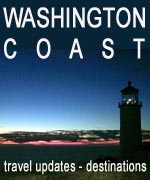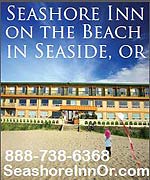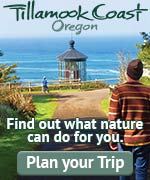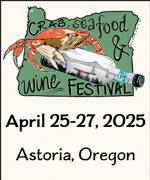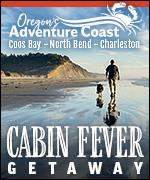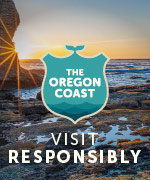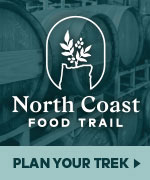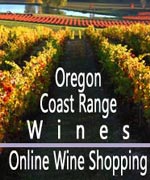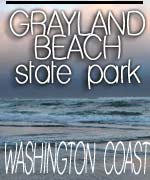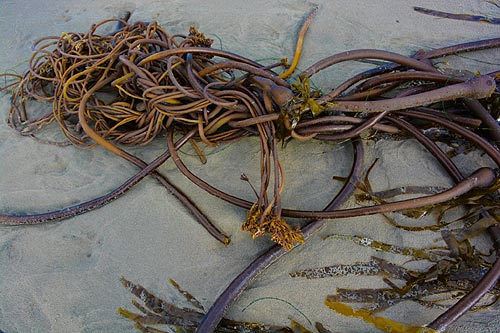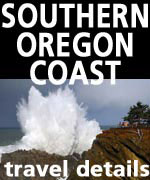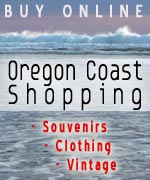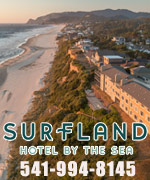Oregon Coast / Washington Coast Answers: Those Strange, Snake-like Whips or Tubes
Published 4/25/24 at 6:05 a.m.
By Andre' Hagestedt, Oregon Coast Beach Connection
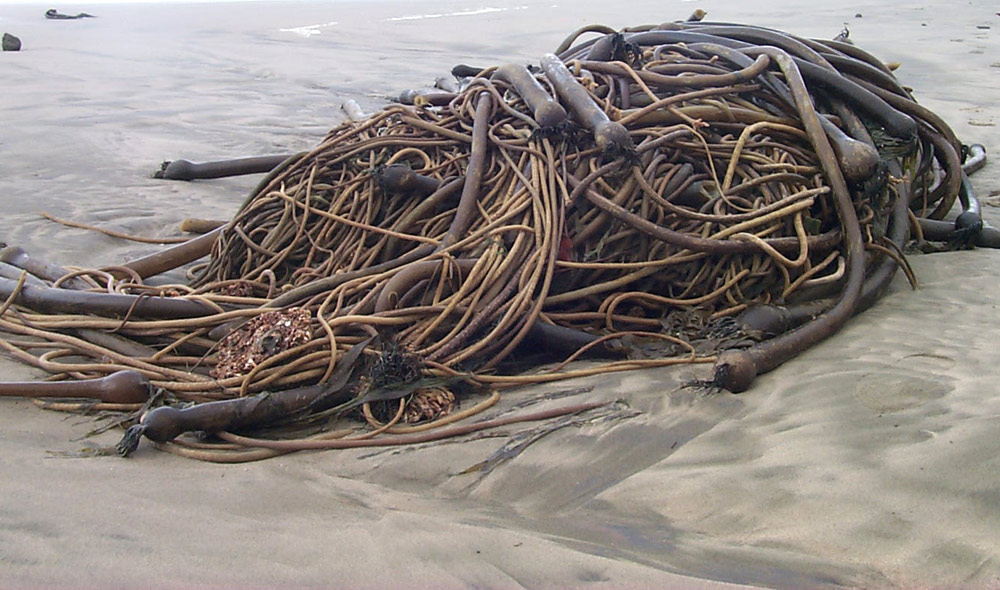
(Oregon Coast) – Taking a walk on any Pacific Northwest beach, you're bound to run into them. Those weird, big, snake-like tubes just sitting around in piles or stretched across the sand: “what are they?” you may be asking. (Photo of bull kelp at Otter Rock, Oregon Coast Beach Connection)
Includes exclusive listings; some specials in winter
In Cannon Beach:
Includes rentals not listed anywhere else
In Manzanita, Wheeler, Rockaway Beach:
Some specials for winter
In Pacific City, Oceanside:
Some specials for winter
In Lincoln City:
Some specials for winter
In Depoe Bay, Gleneden Beach:
Some specials for winter
In Newport:
Look for some specials
In Waldport
Some specials for winter
In Yachats, Florence
Some specials for winter
Southern Oregon Coast Hotels / Lodgings
Reedsport to Brookings, places to stay; winter deals
Wandering spots such as Cannon Beach, Long Beach, Westport, Gold Beach or maybe near Florence, you're bound to bump into a bunch. They're a tad alien-looking in some ways – and who among us as a kid hasn't picked one up and smacked your sibling with it like a whip?
They are, according to experts, a kind of seaweed known as bull kelp – sometimes called bull whip kelp or ribbon kelp. They're essentially a large algae, according to experts like Seaside Aquarium or the Hatfield Marine Science Center in Newport. As they've told Oregon Coast Beach Connection in the past, the scientific name is Nereocystis luetkeana.
Bull kelp are a trippy feature along the Washington coast and Oregon shorelines: there's a lot of interesting little surprises about them, including how they have something to do with our whale populations here.
According to the Hatfield: bull kelp are a large, brown algae that grow in "forests" near the shore. These kelp are annuals, completing their life cycle in one season, and can grow up to 118 feet in one year, but some have seen them as long as 200 feet. Most of those you see on the beaches are 20 – 30 feet long, with some on occasion around 40 feet or so.
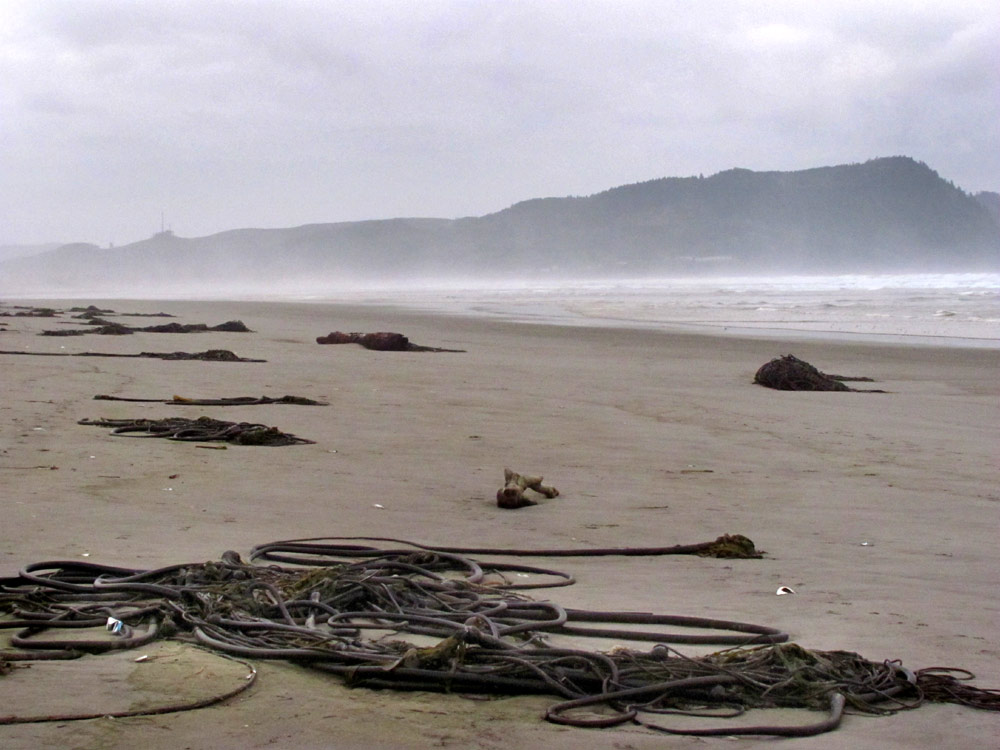
Oregon Coast Beach Connection: bull kelp in Gearhart
Either way, they grow very fast.
These are actually upside forests of a sort: those bulbs are floating while one end is fastened to rocks or reef below.
They grow in enormous fields just offshore and in areas too deep to be affected by tides, but you can sometimes see their roundish bulb heads bobbing in the ocean. Bull kelp are comprised of a single stalk (called a stipe) which attaches to rock on the ocean bed, while at the top is that large bulb and numerous ribbon-like blades. The bulb is filled with carbon monoxide, which is what causes it to float upright in the ocean.
The blades can grow as fast as five inches a day.
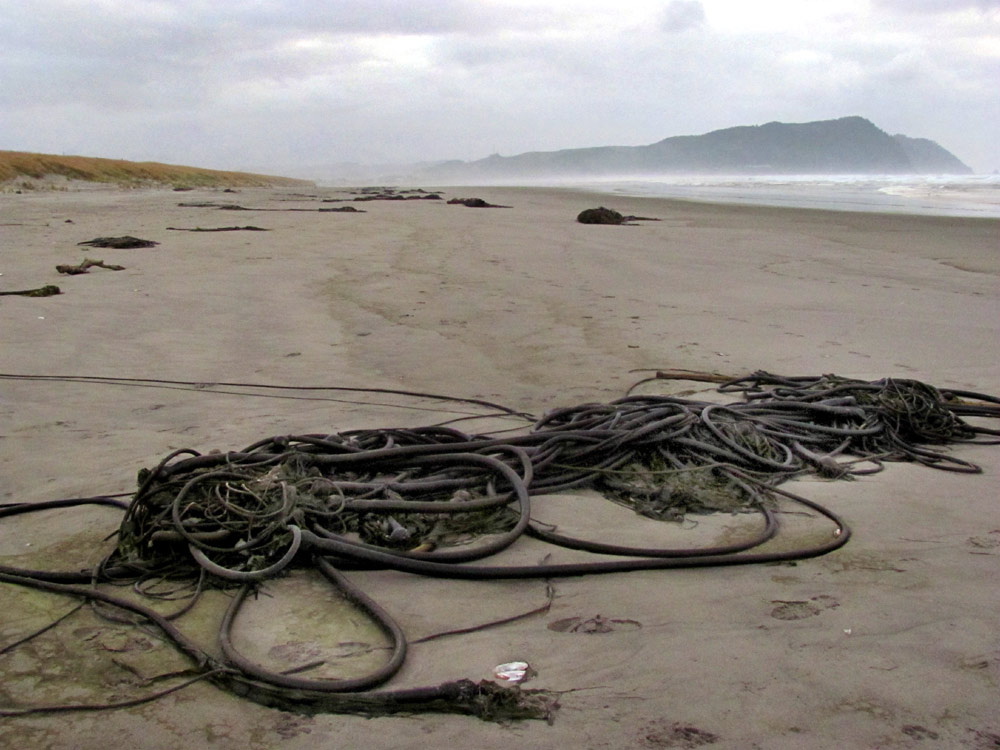
Oregon Coast Beach Connection: bull kelp in Gearhart
So, why do they wind up on the beach?
“During storms, high winds and violent currents may cause kelp to be ripped up from the sea floor,” said Seaside Aquarium. “Strong wave action tangles the kelp, which eventually washes up on the beach in enormous knots.”
If you've gazed out on the ocean from a rocky area – such as around Depoe Bay – you have may seen their little heads bobbing and mistaken them for seals. They do often look that way. But the giveaway is if they stay in one place the whole time. A seal might linger for several seconds looking out, but then it would move on. This is a common sight if you look down from Cape Foulweather as well.
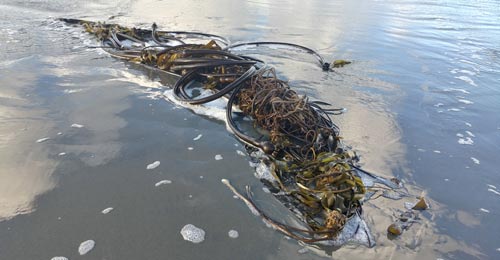
Seaside Aquarium photo
The Hatfield told Oregon Coast Beach Connection they form an intricate aquatic habitat that is vital to the survival of many coastal species. Those blades sprouting out from the bull kelp are leaves in a sense, and they are fed via photosynthesis that is made possible by the big bulbs that keep them afloat.
These kelp beds are among the kind that host lots of mycid shrimp: that's the favorite food of gray whales, and helps explain why grays often linger in the Depoe Bay area.
Interestingly enough, bull kelp around here are quite edible, though you'll want to harvest them fresh from their stand in the ocean, which means don't go trying to gobble them off the beach when you find them there.
They are said to be quite delicious and tender when cooked or marinated.
Oregon Coast Hotels in this area - South Coast Hotels - Oregon Coast Vacation Rentals - Where to eat - Maps - Virtual Tours
Cannon Beach Lodging
Nehalem Bay Lodgings
Manzanita Hotels, Lodging
Three Capes Lodging
Pacific City Hotels, Lodging
Lincoln City Lodging
Depoe Bay Lodging
Newport Lodging
Waldport Lodging
Yachats Lodging
Oregon Coast Vacation Rentals
Oregon Coast Lodging Specials
More About Oregon Coast hotels, lodging.....
More About Oregon Coast Restaurants, Dining.....
 Andre' GW Hagestedt is editor, owner and primary photographer / videographer of Oregon Coast Beach Connection, an online publication that sees over 1 million pageviews per month. He is also author of several books about the coast.
Andre' GW Hagestedt is editor, owner and primary photographer / videographer of Oregon Coast Beach Connection, an online publication that sees over 1 million pageviews per month. He is also author of several books about the coast.
LATEST Related Oregon Coast Articles
Forecasts for Oregon Coast Whale Watch Week, How Well It CooperatesChilly and windy at times but mostly calm waves that let you spot them. Weather
N. Oregon Coast First Day Hikes Include Near Astoria, Pacific City, Waldport
Free self-guided hikes in awesome places: Warrenton events, Coast Range, Portland events, Pacific City events, Waldport events
The Opposite of an Exploding Whale: Oregon Coast History of 'Zombie Whales'
1952: whale would not stay buried. Was it finally entombed in cement. Marine sciences
Oregon / Washington King Tides Misconceptions: Not Always a Supermoon Involved
Not the same as high wave events, don't always include a supermoon. Astronomy
Commercial Crabbing Cleared for December 16 Opening on Majority of Oregon Coast
Over two-thirds of the coast reopens: the rest hopefully Dec 31. Sciences
Holidays 2025 - 26: Giving the Oregon Coast Online
Cyber Monday or a quick call to give a night at the beach or fun gear. Hotel specials, hotel deals, Rockaway Beach hotel reviews, Lincoln City hotel reviews, Manzanita hotel reviews, Cannon Beach hotel reviews, Pacific City hotel specials, Pacific City hotel reviews, Newport lodging deals, Newport hotel reviews
Floating Beacons of the N. Oregon Coast: Astoria's Lightship Columbia History...
History and Hops in Seaside looks to the lightship on Dec 18. Seaside events
Sneaker Wave Alerts on Oregon / Washington Coast - Shipwreck Debris Alerts fo...
High, dangerous waves, and debris from a sunken ship coming in. Weather
Back to Oregon Coast
Contact Advertise on Oregon Coast Beach Connection
All Content, unless otherwise attributed, copyright © Oregon Coast Beach Connection. Unauthorized use or publication is not permitted





